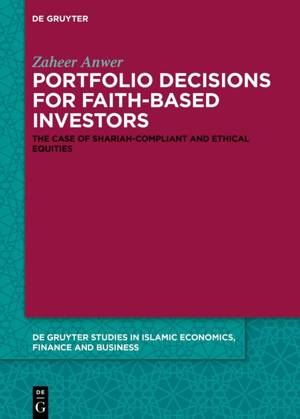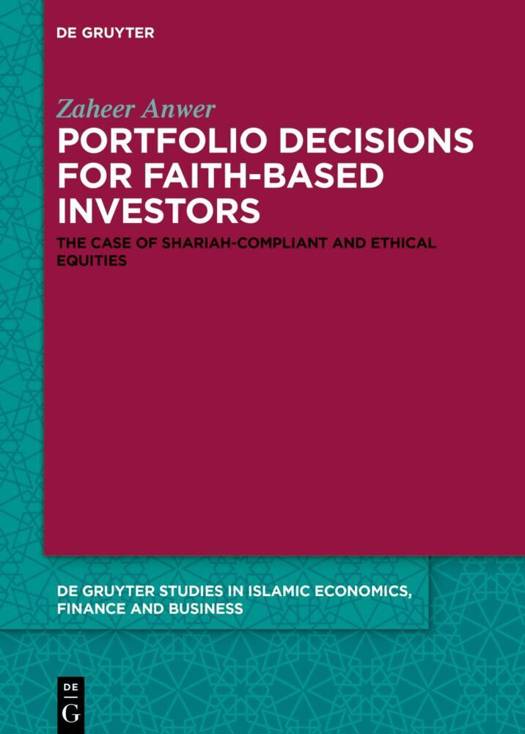
- Retrait gratuit dans votre magasin Club
- 7.000.000 titres dans notre catalogue
- Payer en toute sécurité
- Toujours un magasin près de chez vous
- Retrait gratuit dans votre magasin Club
- 7.000.0000 titres dans notre catalogue
- Payer en toute sécurité
- Toujours un magasin près de chez vous
Portfolio Decisions for Faith-Based Investors
The Case of Shariah-Compliant and Ethical Equities
Zaheer AnwerDescription
This book examines the idiosyncratic risk, risk-return trade off and payout decisions for faith-based investors including Islamic Shariah compliant and ethical investors, who may be paying a cost for their belief system in the form of under-diversification of portfolios and additional monitoring costs owing to their unique risk profile.
There is a growing number of investors who are motivated by social, environmental, and ethical considerations in their investment decisions. They apply a set of investment screens to include or exclude assets based on ecological, social, corporate governance or ethical criteria. This socially responsible investment (SRI), ethical investment or sustainable investment style is prevalent since religious or ethical values matter to investors even if the risk-adjusted returns are lower than those of conventional investments. The author addresses these issues for Islamic and socially responsible portfolios in detail by using proprietary data of Dow Jones Indices from the United States. The findings are a unique and valuable addition to the existing corporate finance, portfolio management and Islamic finance literature.
Spécifications
Parties prenantes
- Auteur(s) :
- Editeur:
Contenu
- Nombre de pages :
- 111
- Langue:
- Anglais
- Collection :
- Tome:
- n° 8
Caractéristiques
- EAN:
- 9783110611854
- Date de parution :
- 08-02-21
- Format:
- Livre relié
- Format numérique:
- Genaaid
- Dimensions :
- 170 mm x 244 mm
- Poids :
- 430 g

Les avis
Nous publions uniquement les avis qui respectent les conditions requises. Consultez nos conditions pour les avis.






